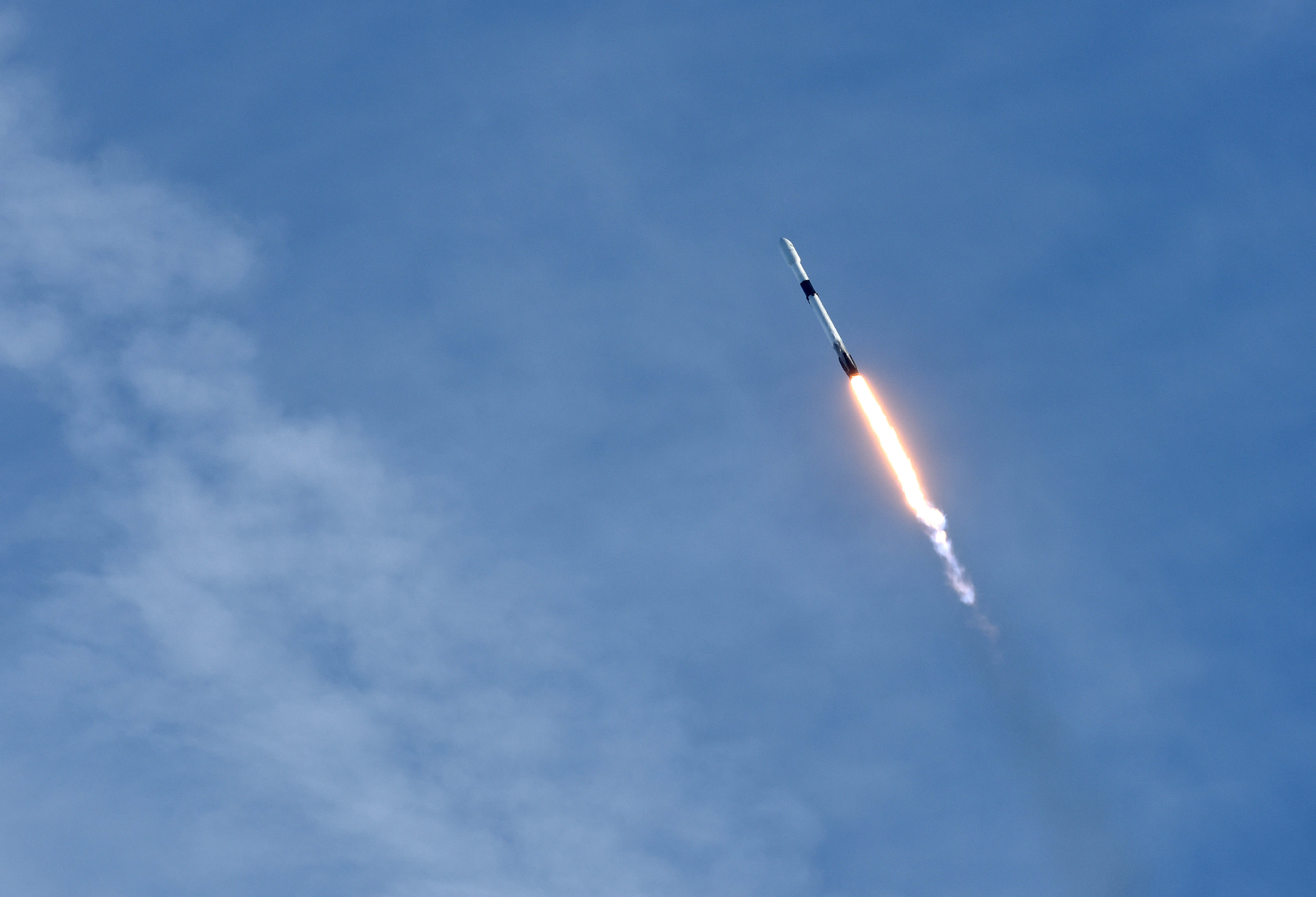A SpaceX Falcon 9 rocket successfully launches carrying the Es’hail-2 communications satellite for the country of Qatar on November 15, 2018 at the Kennedy Space Center in Florida.
NurPhoto | NurPhoto | Getty Images
United States space companies are hoping to get more help against foreign competitors through financing from the U.S. Export-Import Bank, a federal lending agency that SpaceX pointed to on Thursday as a substantial supporter in recent years.
“To-date, EXIM has been very supportive of SpaceX’s effort to win international business and we’re grateful for that … because we are primarily competing against state-backed launch service providers,” SpaceX commercial sales director Stephanie Bednarek said during a teleconference.
“I think it’s fair to say that SpaceX may view EXIM as an extension of our sales force and an asset that’s really critical to help us win international business,” Bednarek added.
EXIM hosted a teleconference with several space executives on Thursday, as a part of the bank’s series on “Strengthening American Competitiveness” — an initiative especially focused on helping U.S. companies compete with China. The financier has historically helped U.S. satellite manufacturing companies win contracts to build spacecraft for foreign entities, with EXIM authorizing about $5 billion of financing since 2010 to support the export of U.S. space products.
Andrew Harrer | Bloomberg | Getty Images
But EXIM wants to deploy even more capital to space companies in the coming years, which would further aid some of the nearly $24 billion in private capital that’s been invested in space infrastructure in the past decade. In addition to SpaceX’s Bednarek, the EXIM call included representatives from satellite imagery specialist Planet, Maxar Technologies, Hawkeye 360 and Hughes Communications.
Bednarek emphasized that a decade ago the U.S. had 0% of the global market for launching non-government, or commercial, spacecraft.
“Now in 2020 we’re seeing about 65% of that share and that is thanks to SpaceX’s efforts in this area,” Bednarek said. “As a result, foreign and primarily state-backed competitors are leverage every tool that they have to overcome SpaceX’s position in the market.”
The EXIM call gave space executives the opportunity to both applaud the lender’s work thus far and give feedback. Bednarek said that some SpaceX customers perceive that “working with EXIM may be a slow process and uncertain if their application will be approved.”
Robbie Schingler, co-founder of Planet, suggested that EXIM could make available “smaller [financing] packages that take a bit more risk” to speed along the approval process — a suggestion Bednarek agreed with and furthered.
“I do think the idea of having a package approach, with the satellite [rocket] launcher and possibly ground segment, to be able to present to a customer a full all-American approach would be something that’s very competitive,” Bednarek said.
One possible expansion for EXIM’s financing would be to help U.S. satellites launch by extending credit to foreign rocket companies, an idea Bednarek unsurprisingly pushed back on, as it would essentially mean financing SpaceX’s competitors.
“I would rather see a whole approach for supporting U.S. satellites, U.S. launch and U.S. ground segments together as a package rather than separating that out,” Bednarek said. “I don’t really feel that fits within EXIM’s charters for U.S. business to help finance foreign launches.”
Subscribe to CNBC PRO for exclusive insights and analysis, and live business day programming from around the world.
